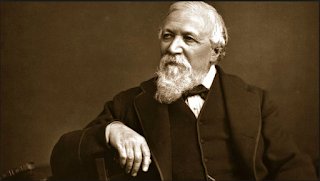Science and Religion: Workshop on Veda and Science
In a 5 days Seminar
held by Department of Sanskrit, JNV University, Jodhpur which commenced from
Jan. 18, 2016 many scholars of Sanskrit, Physicist, and Scientist of NASA,
discussed various issues and some interpretations and assumptions were drawn on
following lines:
Pexels
In English
Literature we tend to differentiate in the countries where English is the
native language or it is second or third language. In the long history of
literature in India, five languages have remained the official language at different stages.
1. Sanskrit- Up to
Mughal invasion
2. Persian-Brought
by Moghuls
3, Urdu - Based on
Hindi, Arabic and Persian
4. English- During
British regime
5. Hindi - written
in Devanagari script having 13 dialects.
Sanskrit is the
ancient language of India, and was lingua franca in Greater India. A broad
definition of literature would consider all text is literature, whether written
or oral.
Vedas are large bodies of
text generated in ancient India. They are the oldest scriptures available to
human civilization. There are four Vedas
1. Rigveda
2. Yajurveda
3. Samaveda
4. Atharvaveda
In the end of the
famous book “One hundred years of solitude” Gabriel Garcia Marquez said
“"It was the history of the family, written by Melquiades, down to the
most trivial details, one hundred years ahead of time. He had written it in Sanskrit...".
So it is just possible that Sanskrit was also popular in South America.
Actually, many
theories support the argument that South America was Patala described in Hindu
Mythology. The main argument in the support of the theory is that in a tunnel
map the antipode of India is South America. It had seven regions based on the
seven levels of evolution of psyche of human beings. According to a theory
Ulupi the wife of Arjuna, was from South America (Patala). Apsara~Nina
Bonita, a literary fiction based on Hindu Mythology has interesting
details of it.
In Vedic Science
the interpretation of many scholars of Sanskrit and scientist and physicist
working in NASA especially of Indian origin have reached to the conclusion that
the Secrets of Cosmos were known to Indian Sages in Vedic Era.
Seminar Hall, Language Wing, JNV University Jodhpur
1. The static
element that governs the dynamics of the cosmos, is beyond time and space. This
is called consciousness.
2. Vajna is not only a ritual
but a scientific process of transfer of energy. Soma is offered to Agni in
whole cosmos . Like rainfall is Soma and ploughed land is source of Agni, which
germinates seeds. Soma has downward movement like all liquids, and Agni has
upward movement like gases.
3. Yajurveda
describes three dimensions of existence, appearance, values and vision.
4. The science can
answer How cosmos was created, but Veda answers Why it was created.
5. Consciousness in
convertible in Energy. Pran is converted into matter. Science is observation of
the behavior of nature. Technocrat interferes with nature. Jaan is acquiring
knowledge of Whole, Vijyan is knowledge of Parts.
6. In Tao of
Physics Fritjof Capra said Heinsberg while making Quantum Theory visited
India and had long discussions with R. N. Tagore about Indian Philosophy in
context with Quantum Theory. The knowledge that scientist obtain by Logic was
obtained by the Sages through introspection.
7. Niels Bohr
said “We must be clear when it comes to
atom, language can be used only as in Poetry”. Consciousness is beyond space
and time.
8. The 9 forms of
Goddess Durga represent nine types of Energy namely Potential Energy,
Kinetic Energy, Sound Energy, Nuclear Energy, Magnetic Energy, Atomic Energy,
Thermal Energy, Electrical Energy and Chemical Energy.
9. References of Fermions and Bosons from
Vedas were quoted. Six types of quarks Up, Down, Strange, Charm, Top and Bottom
were identified and relevant verse connotes the particle theory in Vedas. Vedic
seers when asked Which deity should we offer the worship? (kasme devay havisha
vidhem~Sanskrit verse from Vedas ), it was referring to the particle that is
fundamental to all deities.
10. The concept of Hiranyagarbha (Golden Womb) was
compared with the Big Bang Theory. It requires a lot of research to
reach a final conclusion. The Multiverse has a Grand Design as per
Hawking, but the object of its formation is yet to be determined.
Other Related Post
© Vipin Behari Goyal













